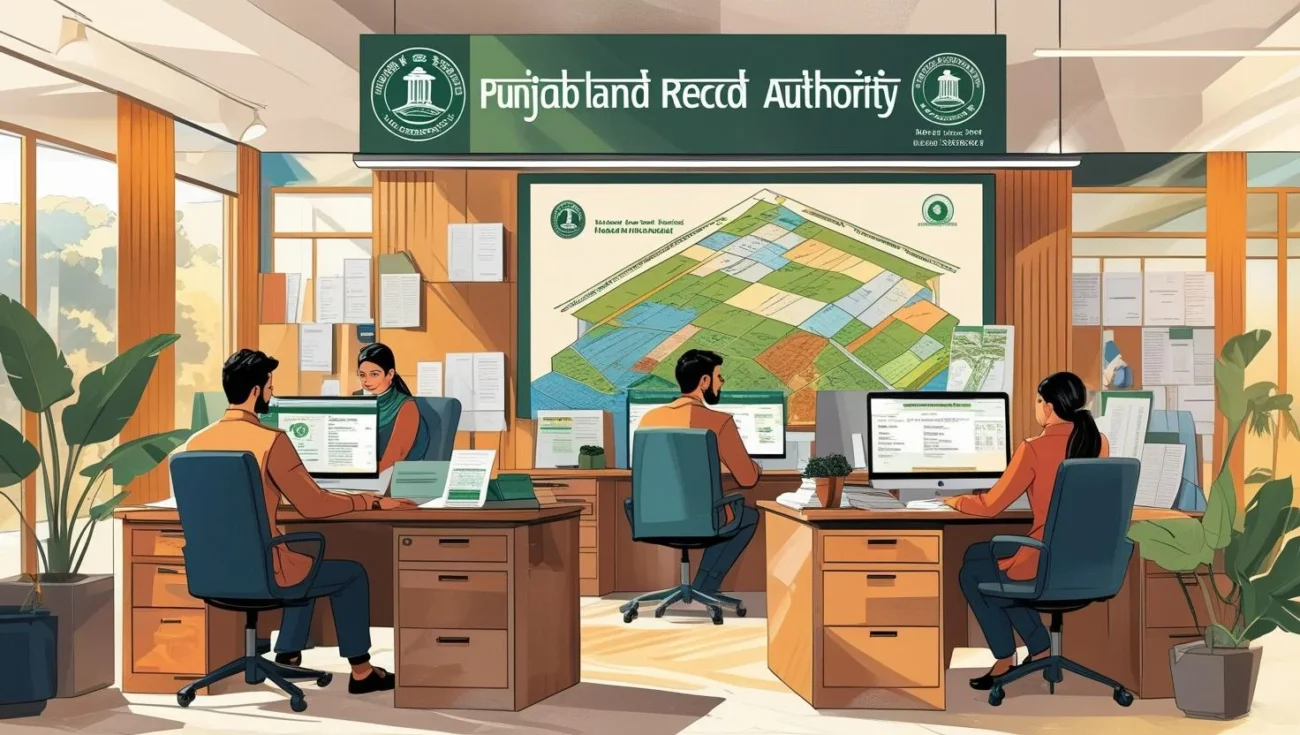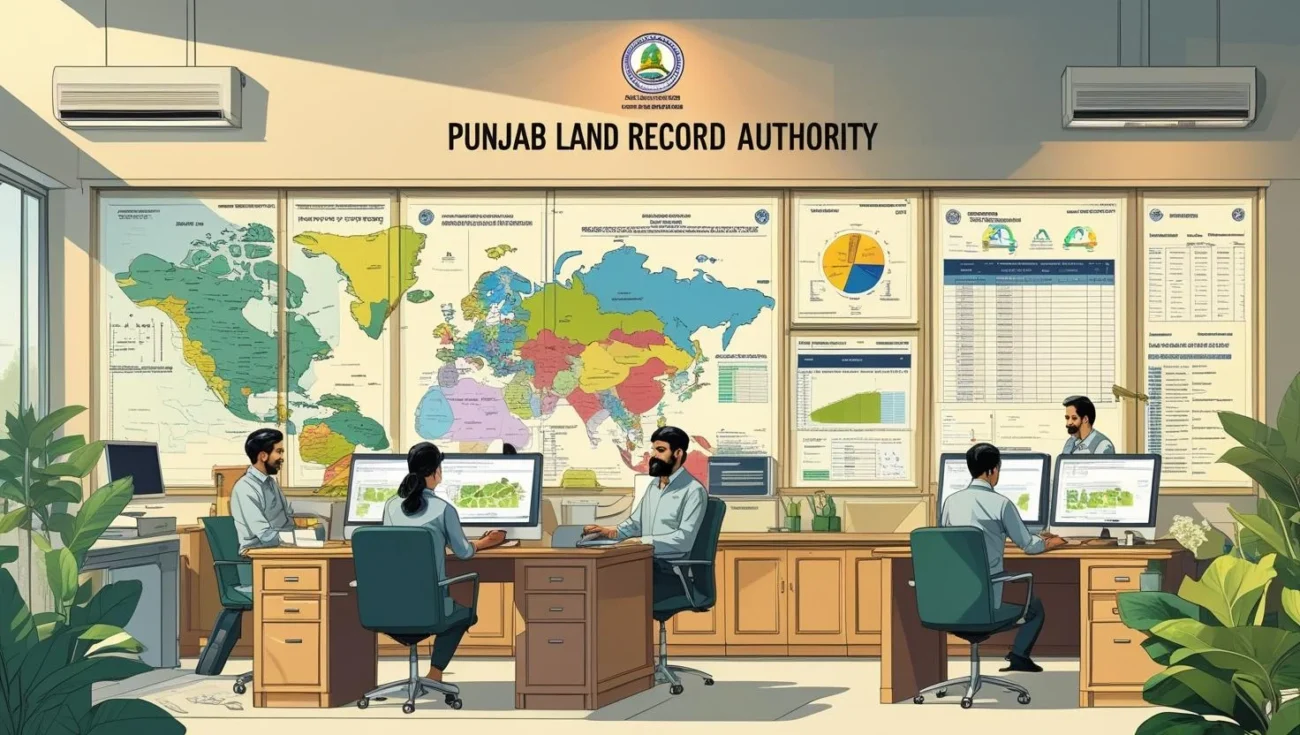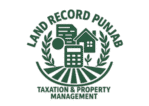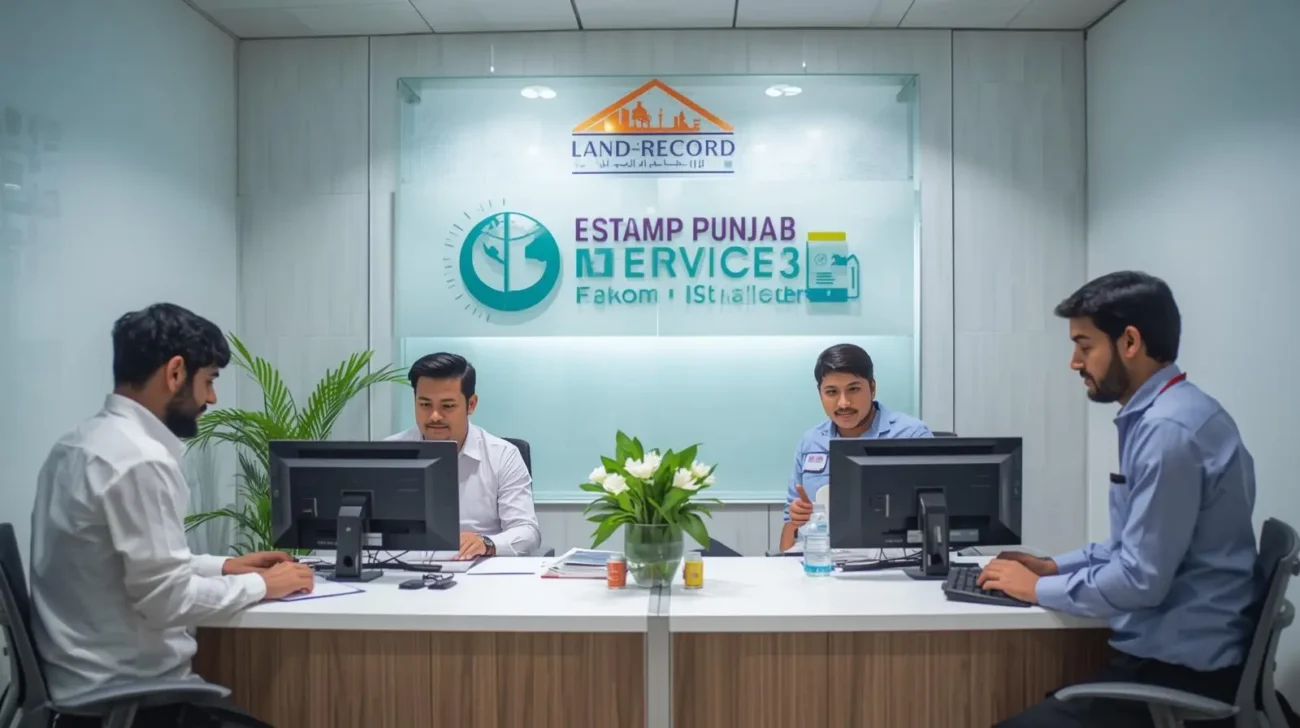The Punjab Land Record Authority (PLRA) has completely changed how land tenure data is recorded, accessed, and managed across the Punjab state. Land governance was based on outdated, paper-based procedures prior to the Authority’s official constitution, which frequently resulted in delays, administrative duplication, and malpractice opportunities. The PLRA was created in 2017 with the passage of the Punjab Land Records Authority Act, marking the beginning of a period marked by improved openness, digital governance, and more efficient public services in land management.
The PLRA has created a network of more than 150 Arazi Record Centers, which currently act as a single, province-wide interface for land-related services, after the complete digitization of local land registers. The Authority has effectively eliminated the need for middlemen, reduced rent-seeking, and implemented a customer-focused service model that both locals and foreigners can use in person or online. Both domestic constituents and Pakistanis living abroad can access services thanks to the integrated web portal and specialized mobile application.
The Basis of Land Ownership: Fard Issuance
The Fard, also known as the Record of Rights, is essential to every land transaction since it serves as proof of legal title and is required for many administrative, financial, and legal procedures.
Why is Fard Important and What Is It?
The Fard serves as the official record for land titles. Its presence is essential for property transfers, secured financing acquisitions, land-related litigation, and entitlement verification in conflict situations. The majority of land deals cannot be legally completed without a Fard.
How to Obtain a PLRA Fard?
Any citizen can obtain a Fard at the closest Arazi Record Center by presenting their CNIC and relevant land details, such as their Mouza title and Khasra number. The process usually takes little more than sixty minutes, greatly reducing the previously required bureaucratic time. The PLRA also allows applications through its website and smartphone interface for added ease, which is a very useful alternative for foreign nationals and people with limited mobility.
Land Mutation: Simplified Transfer of Title
Land mutation is a required process after any change of ownership, and the Punjab Land Record Authority has significantly lowered the administrative difficulties associated with it. The accelerated framework improves the efficiency of title updates in the record by reducing waiting times and procedural ambiguity.
Recognizing Mutation and Its Significance in Law
The official process of amending property ownership registrations to reflect title transfers brought about by sales, inheritances, gifts, exchanges, or court orders is known as mutation. Without alteration, a purchase made in complete compliance with the law will not be listed in the public register, leaving the supposed owner vulnerable to title disputes and endangering future deals.

How the Mutation Process Is Simplified by the PLRA
The Punjab province has completely digitized mutation. The PLRA web portal or an Automated Record Center (ARC) are two possible places for initiators to start the process. The applicant’s identification is verified by checking the National Database and Registration Authority (NADRA) after submitting the necessary documentary proof, which is usually a sale deed, succession certificate, or court order. After the mutation is decided by the PLRA, the updated record is electronically stored and immediately available for review. Both the possibility of fraudulent title modification and clerical errors have been significantly reduced by this publicly available and verifiable system.
Verification of Land Records and Search Services
The Punjab Land Record Authority’s primary responsibility is to provide a trustworthy system for confirming ownership. For buyers, attorneys, and other real estate industry participants, this service is essential since it allows them to determine the integrity of title before encumbrance or investment.
Using Services for Land Verification
People can verify the legal status of any cadastral parcel in several ways. A user has two options: visit any Arazi Record Center (ARC) and ask questions of the personnel, or use the mobile application or the Punjab Land Record Authority (PLRA) website. Presenting a Computerized National Identity Card (CNIC), the appropriate Khasra number, or geographic identifiers like district and mouza is all that is needed for verification. The service strengthens the integrity of real estate transactions and is an essential defense against land fraud.
The advantages of confirming land records
Prospective buyers are shielded from future legal issues, ownership disputes, and substantial financial loss by having their land records verified beforehand. By encouraging openness in real estate transactions, the service discourages unauthorized transfers and false claims to ownership. Now that they have access to reliable and up-to-date data, stakeholders consider this verification process to be crucial to responsible property management.
Arazi Record Centers: Your Local Hub for Land Information
The Punjab Land Record Authority has established an extensive network of Arazi Record Centers in an effort to promote regional fairness and increased public access.
Which Services Do ARCs Provide?
Each ARC is prepared to provide legal heirs with advising advice, fard issuance, mutation processing, cadastral record verification, and correction petition acceptance. Every center uses digital processing systems that speed up and improve the accuracy of service delivery, and they are all connected to the PLRA central repository.
How Public Access Has Been Improved by ARCs
Before Automated Record Centers (ARCs) were established, people had to rely on patwaris to grant them access to land records and travel long distances to record offices. These days, a record-related request can usually be completed the same day by visiting the closest ARC. This strategic network has increased trust in public land administration and significantly reduced turnaround times.
Services for Data Correction and Document Verification
In addition to issuing the Fard of Ownership Rights and handling title mutations, the Punjab Land Record Authority (PLRA) now offers services that verify the accuracy of the underlying data and safeguard the integrity of land documentation.
Acquiring Certified Land Records Copies
Certified copies of land papers are made available to citizens through PLRA by using their jamabandi records for use in personal, business, and legal activities. These copies have the same evidentiary weight in courts and financial institutions as the original records, and they can be obtained at ARCs or through the online service portal.
Fixing Mistakes in Land Documents
Through a systematic application process, mistakes in the land record, such as typographical errors in names, disparities in CNIC numbers, or measurement abnormalities, can be fixed. In order to protect the integrity of subsequent transactions, applicants must provide supporting evidence. After verification, the changes are recorded in the digitized record.

Synchronization of NADRA and Legal Heirship
The Punjab Land Record Authority has synchronized its database with the National Database and Registration Authority (NADRA) in order to expedite inheritance proceedings. This has made it easier to verify legal heirship and the related mutation process.
Processing Succession Matters Digitally
Title to a landowner’s estate must legally pass to their heirs upon their death. In order to verify the legitimate beneficiaries, PLRA’s platform incorporates NADRA’s genealogy information. Prolonged litigation in simple succession situations has mostly been replaced by this technology, reducing the possibility of fraudulent claims.
Equitable and Quick Transfer of Title to Heirs
The mechanism makes sure that title transfers to the heirs of the rightful owner promptly and in a manner that matches the legal requirements. The process reduces the possibility of intra-family disagreement by basing decisions on verified official government documents, making it one of PLRA’s most progressive services.
Facilitation of Evidentiary Documentation and Dispute Resolution
The Punjab Land Record Authority makes a significant contribution to the settlement of territorial disputes despite not being a court.
PLRA Records’ Use in Judicial Settings
PLRA-generated digital records are safe against tampering and have the weight of evidence required in court. These documents help magistrates reach fair decisions by elucidating the chain of title. It is recommended that litigants obtain certified land records from the PLRA to include in their court documents.
Clear Information to Prevent Conflicts
In many cases, the Punjab Land Record Authority’s verified records have settled land disputes outside of the court system, reducing the number of court cases and empowering residents to assert their property rights with empirical certainty. All parties involved can access these data, which clear up any confusion and support the veracity of claims, creating a setting where mediation takes the place of litigation.
GIS Mapping and Upcoming Developments
The agenda for modernization that is being pursued by the Punjab Land Record Authority is still being worked on. The implementation of GIS-enabled parcel mapping, a major project currently in the pilot stage, will produce comprehensive spatial datasets for the province’s whole land base.
GIS’s function in land management
GIS technology produces extremely accurate cartographic outputs that show internal layouts, locations, and property boundaries. This data’s visual presentation reduces the possibility of intrusion and promotes sensible urban development. In order to attain province-wide coverage in the upcoming development cycles, the Authority is progressively deploying these capabilities throughout a few chosen districts.
Urban Integration and Future Services
At the same time, PLRA is expanding its scope to include municipal estates, private housing projects, and urban areas. While the initial deployment focused on rural properties, future phases will incorporate the metropolitan land stock to provide urban dwellers with comparable security guarantees. In order to expedite the rule of law and streamline dispute resolution, planned improvements will include interoperable connectivity to judicial repositories, satellite-based encroachment surveillance, and automated alerts for title adjustments.
Across the Punjab province, the Punjab Land Record Authority has completely changed how land-related services are provided. The PLRA has broken the long-standing reliance on patwaris by placing a high priority on transparency, correctness, and user-centered accessibility. This has brought about a digital transformation in a system that has previously been tainted by corruption and inefficiencies.


